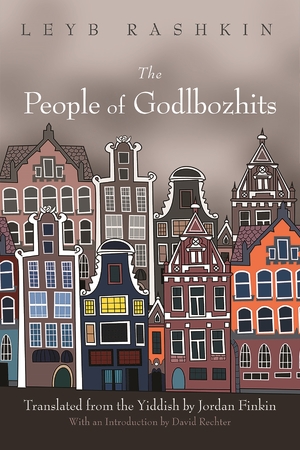"Kutsher's memoir is not only a monument of Holocaust remembrance but a testimony to the lives of the Jews murdered in the Holocaust."—Marc Caplan, author of Yiddish Writers in Weimar Berlin: A Fugitive Modernism
"Kutsher proves to be an unforgettable storyteller, describing all types and classes of Jews in the Polish metropolis in vivid, and especially humorous, detail. In his translation, Gerald Marcus wonderfully captures the informal, conversational style of Kutsher and by the end of the work, the reader gets to know and appreciate the inner life of the Warsaw Yiddish press, theater, literary world and Jewish street life."—Itzik Gottesman, author of Defining the Yiddish Nation: The Jewish Folklorist of Poland
"The book gives vivid snapshots that in total depicts an important chapter of Polish Jewish cultural history."—Jan Schwartz, author of Survivors and Exiles: Yiddish Culture after 1945
Description
As a young man in interwar Warsaw, newspaperman Ber Kutsher threw himself into the city’s vibrant Jewish arts and culture scene from the headquarters of the Association of Jewish Writers and Journalists at Tlomkatse 13 . In Once There Was Warsaw, Kutsher’s achingly human depictions of writers, cabbies, artists, neighbors, and more are translated from the Yiddish into English for the first time, painting a vivid portrait of a moment in Polish history too quickly buried by the horrors of World War II.
Kutsher viewed his memoir, originally published in 1955 after he witnessed the devastation of his home and relocated to France, as something of a holy mission, an opportunity to present the lives of the people who brought Warsaw to life while still making room to mourn the past. Written with humor, heart, and a deeply felt grief, Once There Was Warsaw is a complex and layered portrayal of a city and its people and the pain in remembering just how much was lost in its destruction.
About the Author
Ber Kutsher (1893–1978) was a writer and newspaperman. He came of age in Warsaw between the world wars, and his writing explores the lives of the Yiddish-speaking community in Poland during that time. He published his memoir, Geven amol varshe, in Paris in 1955.
Gerald Marcus has been a student and avid reader of Yiddish for more than twenty-five years and grew up surrounded by Yiddish-speaking relatives and friends. He is the translator of Reuben Iceland’s memoir, From Our Springtime, and Joseph Rolnik’s With Rake in Hand.
Series: Judaic Traditions in Literature, Music, and Art
6 x 9, 334 pages, 1 black and white illustrations, 1 maps
September 2024



